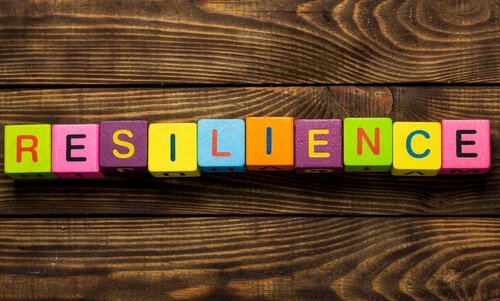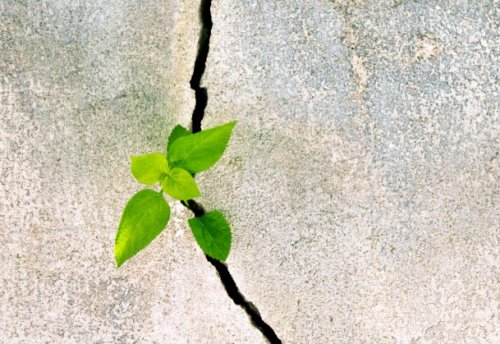Marcelo Ceberio Talks about Resilience

Marcelo Ceberio has authored books such as La Buena Comunicación (Good Communication), Los Superhéroes también Van a Terapia (Superheroes Need Therapy Too), and Cenicientas y Patitos Feos (Cinderellas and Ugly Ducklings). His impressive bibliography is inspiring and based on communication, psychodiagnosis, and psychotherapy.
It’s worth noting his investigations on systemic therapy at the Mental Research Institute in Palo Alto, California. He teaches there and represents Argentina at the Escuela de Terapia Familiar (School of Family Therapy) at the Hospital de Sant Pau in Barcelona.
Likewise, Marcelo Ceberio has been part of the deinstitutionalization effort in Trieste, Italy. This is a statement of his revolutionary approach towards clinical practice. It’s always a pleasure to hear him talk about the importance of working on yourself and reflecting on society.
“Self-esteem and resilience are two concepts that come hand in hand. A person whose self-appraisal is balanced, is someone who’s strong and has enough resources to deal with problematic situations.”
-Marcelo Ceberio-

Interview with Marcelo Ceberio
In this interview with Marcelo Ceberio, you’ll learn more about the concept of resilience. In Man’s Search for Meaning, Viktor Frankl described the transcendence of self-worth in our lives. Being resilient can influence your well-being and boost your self-esteem.
Marcelo Ceberio sees resilience from a systemic perspective and a relational point of view. This way, the psychological resources you use to face your obstacles aren’t the only important thing. Your environment also acts as an intermediary.
This highly valuable and interesting approach can help you expand, if possible, everything you once knew about resilience. Now you can see it as a synergic combination of biological aspects and your emotional intelligence. Let’s see what Marcelo Ceberio has to say about this.
What’s resilience?
Simply put, you could define resilience as the ability that human beings have to survive difficult times. When feeling vulnerable to things, a resilient person can use their resources to face, adapt, and overcome difficulties.
What can you tell us about resilience from a systemic point of view?
Resilience is a relational concept. It happens when you interact with other people and you need to rely on yourself to face your problems.
Regarding resilient abilities, what’s more defining: personal resources or environmental resources?
Personal resources are those that you already have, the ones that come from yourself and are developed with each interaction with others and with the problems you face. Now, of course, the environment or context is very important. It’s a stimulant and motivator to boost your resilience resources.
I could say that both are relevant because one influences the other to boost or to decrease itself. I’m me because you’re you, meaning that your identity comes from your interactions. You’re the interaction with a context, actions, situations, personal resources, biology, and attributed meanings. All of that makes you resilient.

Is affection related to resilience?
Affection is essential, not only to a resilient person but to life itself. I always say that there are four familiar elements in nature: air, fire, water, and earth. In human territory, you have a fifth element: love. Love, in being resilient, is what keeps us from catastrophes. You’re a relational being, you need others to ensure your survival.
This relation has been proved in the findings of a Harvard Study on adult development. It’s about a research project from 1938 that has continued and examined the lives of over 700 men and women and, in some cases, their spouses as well.
This study, which also is the longest longitudinal study in history, shows that the importance of living comes from our relationships. You need to keep close relationships. It’s a fact that the happiest and mentally healthiest people are the ones that share a strong bond with their families and friends.
One of the study’s directors, Waldinger, points out the importance of good quality relationships, avoiding those that are conflictive, and focusing on the healthy ones. Having many friends won’t make you the happiest person on Earth, the quality of your relationships will. It’s not about quantity, but about quality.
Lastly, being able to put yourself in someone else’s place, to empathize, to understand them. This is a way of reducing conflicts and living a less tortuous life. This will help you take note of the good in any situation, to extract the traumas and see the grandeur in every situation. However, I need to note that there are certain situations where, sometimes, it’s hard to see the glass half full like the death of a child, rape, or catastrophes.
Do you think that someone without strong bonds can still be resilient? If yes, then how?
Attachment, a concept coined by J. Bowlby in the 40s, says that, to survive, human beings need at least to keep in touch with one important person in their lives. Not someone to feed us (remember that humans can’t stock up by themselves), but to feel protected and certain of affection.
Attachment doesn’t only involve emotions, it’s also a purely interactional concept and, as such, affectionate feelings can stay with you for life and make you stronger. Insecure people with relationship issues, in many cases, didn’t feel loved as children and lack the support that could give them confidence and self-esteem.
Although that biological and emotional interactional style can indeed be developed in later years, it can be also learned and systematized earlier on. B. Cirulnyk, one of the authors who have worked the most on resilience, talks about resilience tutors which are emotional supports, guides, and motivators that can help you overcome difficult situations.
It’s worth noting that figures of affection aren’t only people such as parents, spouses, godparents, aunts, or friends. Movies, quotes, stories, books, and songs can also stimulate and generate motivation.
If you’ve had secure attachments, this might make it easier for you to motivate yourself. This is the true outcome of attachment: to make you stronger to be your person and to face your life’s problems, but to also have the ability to be rescued by people in their adult world, to be helped and supported in overcoming conflicts. At the same time, to have the strength to offer yourself as an attachment figure or a resilience tutor.
How does self-esteem influence our ability to be resilient?
Self-esteem and resilience are two concepts related to each other. One person whose personal praise is balanced is also strong and has enough resources to face whatever issues arise. Now, they’d know when to ask for help and to surround themselves with positive people who can guide them.
You might be unaware of these abilities sometimes, depending on how you look at yourself. I define self-esteem as the self-conscience of recognizing my resources as well as my weaknesses because knowing I’m vulnerable also makes me stronger.
“The balance between self-esteem and resilience is the best way to face traumatic or conflictive situations.”
-Marcelo Ceberio-

How can someone deal with a lack of self-esteem and their insecurities?
Lacking self-esteem and feeling insecure are closely knit issues. If you lack self-esteem, you’re insecure. Your insecurity lowers your self-esteem and you’ll get lost in an endless cycle.
Ugly ducklings and Cinderellas, to try and overcome those feelings of insecurity and lack of self-esteem, need to stop doing things just to feel that people like them or care about them. Self-esteem is a process that starts from within, not the other way around.
Underappreciated people try to do things for others, secretly waiting to get recognition, and don’t realize that they’re putting their desires behind others. Just because they might get a hug or an expression of affection.
They turn into machos, wonder women, ambulances, firefighters, perfect students, victims, just to get a few doses of self-esteem with each interaction. This doesn’t work. Someone with no self-esteem is like a bag filled with holes. You try to fill it, but you can’t. Yes, everybody likes to get praise and to hear how good we are, how smart we are, and how cute we are, but depending on it is almost pathological.
Look within yourself and make a list of your virtues and defects. Try to understand who you are with all of your weaknesses and strengths, this will give you worth in your own eyes. Place yourself first, give without expecting something in return, do the things you’d like to do, ask for things, and hang out with people who give you true affection and who encourage you every day.
Some people have had really bad experiences in life, but they remain resilient. Why?
It’s hard to pinpoint just one thing regarding people like that. It’s still a mystery. Human beings have survived wars, concentration camps, family abuse, famines, poverty, and any other vulnerable situations. They have a natural survival ability and, however, some people with fewer issues just don’t succeed in those environments.
Resilience is a synergic conjunction of biological abilities (neurotransmitters such as serotonin, dopamine, endorphins, the hippocampus which is the learning center with available ad hoc information, good development of mirroring hormones that help you empathize), emotional intelligence (just like Goleman said about the five components of emotional intelligence: self-consciousness, self-regulation, motivation, empathy, and social skills), creative elements (right hemisphere) to see the positive side of things, creativity to find ways out of problems, and empathic abilities to create healthy and nurturing bonds.
A resilient person has a cognitive attitude that structures a sequence of positive thoughts. These positive thoughts cancel the negative ones that traumatize and infect our emotions.
It’s also an evolutionary process. There are resilient adults that created a method to identify what made them resilient. Parents with harsh lives that overcame painful situations have motivated their children to be resilient too. They’ve given them the resources to face any issue, besides the explicit messages and teachings. To me, these are the qualities that I’ve noticed in resilient people.

Is there a type of resilient personality?
Good question! I think there’s a resilient type of personality or, at least, a tendency towards resilience. Someone people just have that ability of survival or easiness to adapt and survive things, like what I described in the last question.
However, resilience can be created and stimulated. In psychotherapy, we create resilience. I mean, we heightened some people’s resources so they can develop the ability to face any issue they come across. This means that it might come naturally to some people to have the resources to solve and overcome catastrophes, but others need a little help, or motivation, to create such survival tools.
Marcelo Ceberio has authored books such as La Buena Comunicación (Good Communication), Los Superhéroes también Van a Terapia (Superheroes Need Therapy Too), and Cenicientas y Patitos Feos (Cinderellas and Ugly Ducklings). His impressive bibliography is inspiring and based on communication, psychodiagnosis, and psychotherapy.
It’s worth noting his investigations on systemic therapy at the Mental Research Institute in Palo Alto, California. He teaches there and represents Argentina at the Escuela de Terapia Familiar (School of Family Therapy) at the Hospital de Sant Pau in Barcelona.
Likewise, Marcelo Ceberio has been part of the deinstitutionalization effort in Trieste, Italy. This is a statement of his revolutionary approach towards clinical practice. It’s always a pleasure to hear him talk about the importance of working on yourself and reflecting on society.
“Self-esteem and resilience are two concepts that come hand in hand. A person whose self-appraisal is balanced, is someone who’s strong and has enough resources to deal with problematic situations.”
-Marcelo Ceberio-

Interview with Marcelo Ceberio
In this interview with Marcelo Ceberio, you’ll learn more about the concept of resilience. In Man’s Search for Meaning, Viktor Frankl described the transcendence of self-worth in our lives. Being resilient can influence your well-being and boost your self-esteem.
Marcelo Ceberio sees resilience from a systemic perspective and a relational point of view. This way, the psychological resources you use to face your obstacles aren’t the only important thing. Your environment also acts as an intermediary.
This highly valuable and interesting approach can help you expand, if possible, everything you once knew about resilience. Now you can see it as a synergic combination of biological aspects and your emotional intelligence. Let’s see what Marcelo Ceberio has to say about this.
What’s resilience?
Simply put, you could define resilience as the ability that human beings have to survive difficult times. When feeling vulnerable to things, a resilient person can use their resources to face, adapt, and overcome difficulties.
What can you tell us about resilience from a systemic point of view?
Resilience is a relational concept. It happens when you interact with other people and you need to rely on yourself to face your problems.
Regarding resilient abilities, what’s more defining: personal resources or environmental resources?
Personal resources are those that you already have, the ones that come from yourself and are developed with each interaction with others and with the problems you face. Now, of course, the environment or context is very important. It’s a stimulant and motivator to boost your resilience resources.
I could say that both are relevant because one influences the other to boost or to decrease itself. I’m me because you’re you, meaning that your identity comes from your interactions. You’re the interaction with a context, actions, situations, personal resources, biology, and attributed meanings. All of that makes you resilient.

Is affection related to resilience?
Affection is essential, not only to a resilient person but to life itself. I always say that there are four familiar elements in nature: air, fire, water, and earth. In human territory, you have a fifth element: love. Love, in being resilient, is what keeps us from catastrophes. You’re a relational being, you need others to ensure your survival.
This relation has been proved in the findings of a Harvard Study on adult development. It’s about a research project from 1938 that has continued and examined the lives of over 700 men and women and, in some cases, their spouses as well.
This study, which also is the longest longitudinal study in history, shows that the importance of living comes from our relationships. You need to keep close relationships. It’s a fact that the happiest and mentally healthiest people are the ones that share a strong bond with their families and friends.
One of the study’s directors, Waldinger, points out the importance of good quality relationships, avoiding those that are conflictive, and focusing on the healthy ones. Having many friends won’t make you the happiest person on Earth, the quality of your relationships will. It’s not about quantity, but about quality.
Lastly, being able to put yourself in someone else’s place, to empathize, to understand them. This is a way of reducing conflicts and living a less tortuous life. This will help you take note of the good in any situation, to extract the traumas and see the grandeur in every situation. However, I need to note that there are certain situations where, sometimes, it’s hard to see the glass half full like the death of a child, rape, or catastrophes.
Do you think that someone without strong bonds can still be resilient? If yes, then how?
Attachment, a concept coined by J. Bowlby in the 40s, says that, to survive, human beings need at least to keep in touch with one important person in their lives. Not someone to feed us (remember that humans can’t stock up by themselves), but to feel protected and certain of affection.
Attachment doesn’t only involve emotions, it’s also a purely interactional concept and, as such, affectionate feelings can stay with you for life and make you stronger. Insecure people with relationship issues, in many cases, didn’t feel loved as children and lack the support that could give them confidence and self-esteem.
Although that biological and emotional interactional style can indeed be developed in later years, it can be also learned and systematized earlier on. B. Cirulnyk, one of the authors who have worked the most on resilience, talks about resilience tutors which are emotional supports, guides, and motivators that can help you overcome difficult situations.
It’s worth noting that figures of affection aren’t only people such as parents, spouses, godparents, aunts, or friends. Movies, quotes, stories, books, and songs can also stimulate and generate motivation.
If you’ve had secure attachments, this might make it easier for you to motivate yourself. This is the true outcome of attachment: to make you stronger to be your person and to face your life’s problems, but to also have the ability to be rescued by people in their adult world, to be helped and supported in overcoming conflicts. At the same time, to have the strength to offer yourself as an attachment figure or a resilience tutor.
How does self-esteem influence our ability to be resilient?
Self-esteem and resilience are two concepts related to each other. One person whose personal praise is balanced is also strong and has enough resources to face whatever issues arise. Now, they’d know when to ask for help and to surround themselves with positive people who can guide them.
You might be unaware of these abilities sometimes, depending on how you look at yourself. I define self-esteem as the self-conscience of recognizing my resources as well as my weaknesses because knowing I’m vulnerable also makes me stronger.
“The balance between self-esteem and resilience is the best way to face traumatic or conflictive situations.”
-Marcelo Ceberio-

How can someone deal with a lack of self-esteem and their insecurities?
Lacking self-esteem and feeling insecure are closely knit issues. If you lack self-esteem, you’re insecure. Your insecurity lowers your self-esteem and you’ll get lost in an endless cycle.
Ugly ducklings and Cinderellas, to try and overcome those feelings of insecurity and lack of self-esteem, need to stop doing things just to feel that people like them or care about them. Self-esteem is a process that starts from within, not the other way around.
Underappreciated people try to do things for others, secretly waiting to get recognition, and don’t realize that they’re putting their desires behind others. Just because they might get a hug or an expression of affection.
They turn into machos, wonder women, ambulances, firefighters, perfect students, victims, just to get a few doses of self-esteem with each interaction. This doesn’t work. Someone with no self-esteem is like a bag filled with holes. You try to fill it, but you can’t. Yes, everybody likes to get praise and to hear how good we are, how smart we are, and how cute we are, but depending on it is almost pathological.
Look within yourself and make a list of your virtues and defects. Try to understand who you are with all of your weaknesses and strengths, this will give you worth in your own eyes. Place yourself first, give without expecting something in return, do the things you’d like to do, ask for things, and hang out with people who give you true affection and who encourage you every day.
Some people have had really bad experiences in life, but they remain resilient. Why?
It’s hard to pinpoint just one thing regarding people like that. It’s still a mystery. Human beings have survived wars, concentration camps, family abuse, famines, poverty, and any other vulnerable situations. They have a natural survival ability and, however, some people with fewer issues just don’t succeed in those environments.
Resilience is a synergic conjunction of biological abilities (neurotransmitters such as serotonin, dopamine, endorphins, the hippocampus which is the learning center with available ad hoc information, good development of mirroring hormones that help you empathize), emotional intelligence (just like Goleman said about the five components of emotional intelligence: self-consciousness, self-regulation, motivation, empathy, and social skills), creative elements (right hemisphere) to see the positive side of things, creativity to find ways out of problems, and empathic abilities to create healthy and nurturing bonds.
A resilient person has a cognitive attitude that structures a sequence of positive thoughts. These positive thoughts cancel the negative ones that traumatize and infect our emotions.
It’s also an evolutionary process. There are resilient adults that created a method to identify what made them resilient. Parents with harsh lives that overcame painful situations have motivated their children to be resilient too. They’ve given them the resources to face any issue, besides the explicit messages and teachings. To me, these are the qualities that I’ve noticed in resilient people.

Is there a type of resilient personality?
Good question! I think there’s a resilient type of personality or, at least, a tendency towards resilience. Someone people just have that ability of survival or easiness to adapt and survive things, like what I described in the last question.
However, resilience can be created and stimulated. In psychotherapy, we create resilience. I mean, we heightened some people’s resources so they can develop the ability to face any issue they come across. This means that it might come naturally to some people to have the resources to solve and overcome catastrophes, but others need a little help, or motivation, to create such survival tools.
This text is provided for informational purposes only and does not replace consultation with a professional. If in doubt, consult your specialist.







